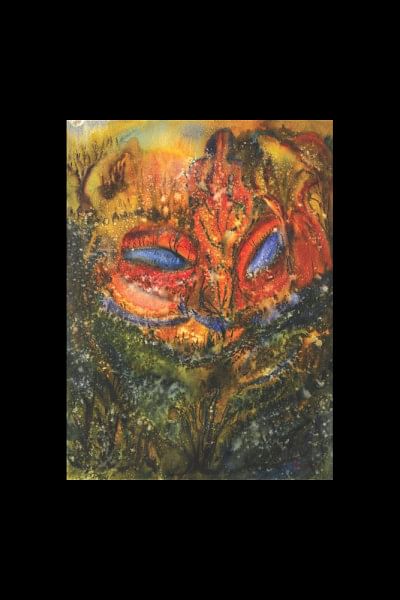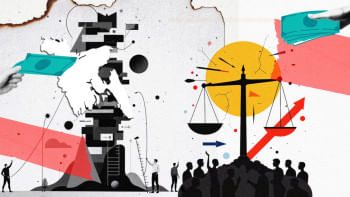When ‘them’ becomes ‘us’

As one more year fades away into the realm of the past, it may be useful to reflect on the core aspects of our life. Not about the trip to the Aegean Sea or the Amalfi Coast, but about how we have evolved over time.
This reflective mode was turned on by an intriguing Facebook post from a Bangladeshi-American friend: "I was 22 years old on 16th December, 1971. As Indian soldiers and freedom fighters were rolling onto the streets of Dhaka …. It was very hard to control emotions. It is hard to grasp that 46 years have passed. When I go back to my motherland… I don't feel connected to it as much. Don't know why." Since the person is a great patron of Bangladeshi art and music in the United States, I was surprised by the comment. He is also a regular at deshi dinners and concerts. Yet he says he cannot "connect" to his motherland! What then does connecting mean – physical proximity or something deeper?
After some thought, I concluded that the identity ambivalence we all experience is most probably related to the multiple identities embedded in our psyche. Often we miss this reality, consigning it to our subconscious. The tendency is quite understandable since belonging to a tribe makes it easier for us to cope with the inner conflict of "them versus us", while helping us to distance ourselves from someone or something we consider to be the "other". My Facebook friend may feel more comfortable in the salubrious setting of his Maryland home than in his "motherland" where garbage is piled on sidewalks and the pristine environment of 1971 has been replaced by a concrete jungle. But I wonder if Walt Whitman's poetry evokes the same sentiments in him as Tagore's lyrics? Can he connect the same way to American country music as to the Baul folk melody of Bengal? Perhaps not. I must, however, admit that with time we acquire an affinity for the environment we operate in -- the acculturation process is inevitable in the case of all immigrants, especially for first generation arrivals.
However, the truth is that no matter how long we live in our adopted country the break with the homeland is never complete. The culture or the ethos of the country where we have spent the formative years of our youth and childhood always remains ingrained in our psyche. But as we make the journey of life we change and adapt and learn to live with multiple identities.
Amartya Sen, the philosopher and economist who won the Nobel Prize, has expanded this idea in his book, Identity and Violence. He believes that being fixated with a single identity is the root cause of divisiveness that can morph into terrorist and hate movements. Sen began thinking about these issues at the tender age of eleven when an injured Muslim labourer, Kader Mia, staggered into his family garden in Dhaka. Kader was knifed by a Hindu during the riots that occurred in Bengal in the last phase of the British Raj. The victim was rushed to the hospital but died. This heart wrenching incident left an indelible mark on Sen who realised that Kader would have lived if only his Hindu assailant had seen him not just as a Muslim, but as a fellow Bangali and a poor man who perhaps had a family to support. As Sen articulates eloquently in his book --no person is just one thing. It's ludicrous to categorise people of different genders, colours, cultures and passions as only Muslim, Hindu, Bangladeshi or American. In Sen's view the idea that we can be divided up in this way leads to a "miniaturisation" of humanity, with everyone locked up in little boxes from which they view others as aliens. The reality is that each one of us is a little bit of everything – a mix of all our life experiences.
You might be wondering why I branched into the topic of multiple identities from my friend's Facebook post. It's because I believe that the posting was rhetorical and not meant as an absolute declaration of disengagement. It may also have been part of a process of self -questioning. For, no one is a caricature of one or two demographic factors. Yes, we are not all similar, but we have a common thread running through our human characteristics. The future hope of our planet rests largely on a better appreciation of the plurality of our identities, which works against divisiveness.
I have often been asked why I left my motherland and embraced a foreign country as my own. The answer is too complex to be covered in a mere column. But the more important fact is that the move has done little to diminish my innate Bangali identity, which is part of my DNA -- nothing can change that, no matter what passport I hold. I feel it each time I arrive in Dhaka and am deafened by the loud cross talk at public places. Or irked by the honking, crazy traffic in overcrowded streets. It may be a stark contrast to the discipline and order I encounter in the US, but the disorderly familiarity of the street babble in my mother tongue, and the gridlock, which I must admit is one of its kind in the world, give me a strange sense of belonging.
As we approach the New Year, I want to reiterate the truth about my multiple identities – that I am a woman, a Bangali, a Muslim, a US citizen, a singer, a wife, a mother, a grandmother -- but above all, a human being. I can find something in common with an American activist, an Indian musician, a Syrian refugee and even the Bangladeshi worker from the Middle East who stands beside me in the immigration line at Dhaka airport. The amazing thing is that the more I recognise the commonalities between these people and me, the more I am beginning to understand myself!
Milia Ali is a Rabindra Sangeet exponent and a former employee of the World Bank.





Comments